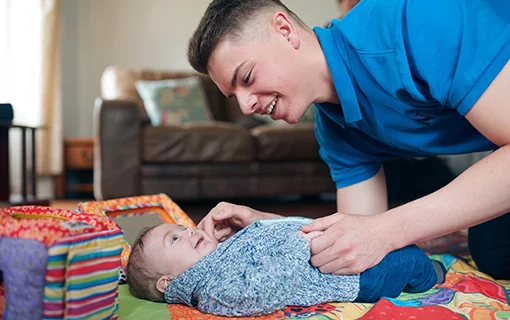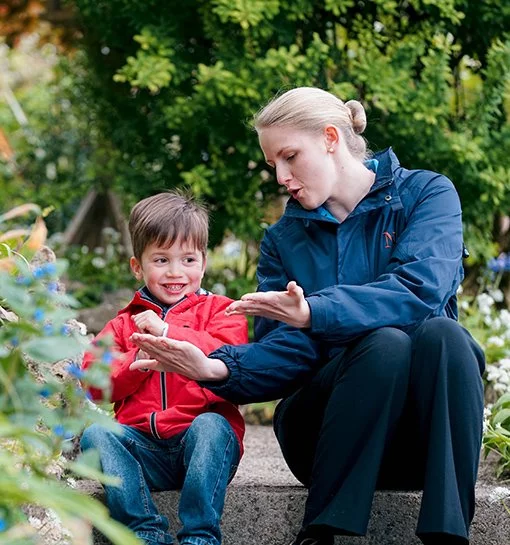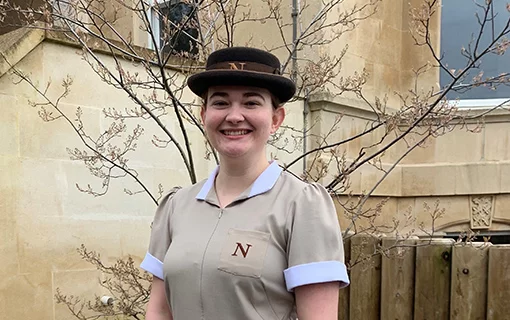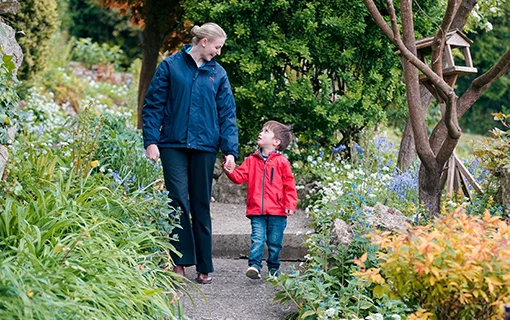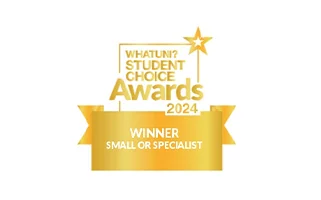10 play ideas for under 12 months
17 June 2020

Lockdown and social distancing can be daunting for even the smallest of children. Newly Qualified Nanny Abi (Set 39) has compiled a selection of 10 supervised play ideas suitable for children under 12 months.
Sensory bags are a good way to encourage and give a sensory experience, whilst minimising mess. You can fill sensory bags with basically anything – from peas, pom poms, shaving foam, washing up liquid to confetti! Make sure you secure the bags well using clear zip lock bags or strong tape to ensure babies can’t get into them and nothing leaks out. To work on tummy time, you can tape the bags to the floor to encourage babies to hold themselves up to look at the bags.
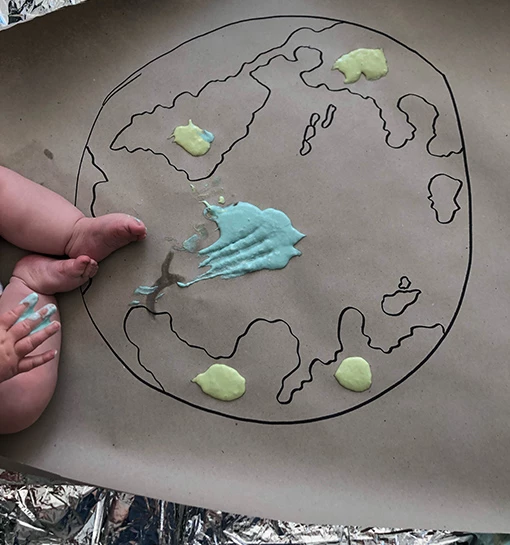
“When your baby is over 6 months and begins weaning, you can introduce taste safe activities, with foods that if consumed won’t cause any harm. A fun taste safe activity is ‘edible water beads’.”
Sensory bags are a good way to encourage and give a sensory experience, whilst minimising mess. You can fill sensory bags with basically anything – from peas, pom poms, shaving foam, washing up liquid to confetti! Make sure you secure the bags well using clear zip lock bags or strong tape to ensure babies can’t get into them and nothing leaks out. To work on tummy time, you can tape the bags to the floor to encourage babies to hold themselves up to look at the bags.
Taste safe water beads. Instead of buying normal water beads which are commonly seen in early years settings, you can purchase large tapioca bubbles (used for bubble tea) and cook them and use them plain, or sometimes I add food colouring! I purchased these bubbles online and they were so much fun! To encourage exploration I provide spoons, sieves and pots to use with the beads.
Flour play. An activity for babies who have started the weaning journey. With some flour, paper bags and spoons, you can give endless entertainment! My charge loves watching flour fall from a sieve or trying to shake it out of a bag. Flour is such a different sensory experience to most as it is dry and quite tricky to grasp, meaning exploration can be very in-depth and encourage problem solving.
Edible paint is so much fun and a great introduction to messy play! To make the paint I just mix some plain flour with water to make a paste and then add some food colouring. When you first introduce paint it will probably go everywhere, so I often buy a large roll of plain wallpaper or easel paper, cut a large piece and put it on the floor, then give my charge the plastic pots filled with paint. Sometimes I provide paintbrushes, but often I will just let her explore with her hands (and the rest of her body!)
Baking tray treasure retrieval. A fun and simple activity to encourage fine motor skills and problem solving. Simply place some small items (Small World Toys, Grapat rings and other baby-safe objects) in a tin and create a grid of elastic bands, allowing babies to put their hands inside the holes to try and grab items. The bands should be placed tightly to ensure little fingers can’t work them off and, as with all of these activities, parental supervision is essential.
Heuristic play is the engagement and exploration of every day ‘objects’ you can find around the house. One of my charges is 10 months old and loves this form of play as she thinks it’s a real treat to be able to have items which she often sees me using every day, but she would never normally get to play with. These items include wooden spoons, metal and plastic bowls, measuring spoons and jugs, whisks and silicon kitchen utensils, washing baskets, socks, boxes and containers. This form of play has so many amazing benefits as it encourages understanding of the world, exploration and problem solving. To present the items I usually lie them on a tuff tray or mat, or I will give a selection of items and show my charge different ways she can use them, such as using a wooden spoon to bang on pots and pans.
Water play is fun for all ages. With babies you can incorporate items such as pouring cups, watering cans, sea animals, ice, edible petals and leaves, and medium sized stones and shells. Water play is so much fun and can encourage both gross and fine motor skills, depending on the resources you provide. It is vital you supervise your baby at all times in the water!
Ice play is wonderful for engaging fine motor skills and a fun sensory experience for babies as they do not often experience this form of cold. Try freezing citrus fruits, herbs, washed flowers and pom poms. You can use cooled boiled water to create a clearer ice. I use different sized containers and trays and offer the empty containers as a resource during play so babies can practice filling and emptying containers. Leave the ice out for a little while before giving to your child so that it doesn’t hurt their fingers.
Puppets and story sacks. Using puppets is a recent activity that my charge and I have been loving. You can use finger puppets or whole hand puppets to sing nursery rhymes and tell stories. You could use socks to make simple hand puppets to create different characters or find fun baby-safe props around the house to bring the story to life. Babies love the interaction with the different characters, and it makes for a much more interactive and engaging story time.
Jelly dig. This is a fun, messy play activity for babies. Simply make a large batch of jelly and then cover some waterproof baby-safe items in a tray and leave in the fridge to set. If you’ve used a larger or deeper tray it may take longer to set. You can give babies a spoon to dig or they can just use their hands. I use gelatine leaves and food colouring, to make sure there is no sugar in the jelly. You can also use natural food colourings such as beetroot, spinach or paprika.
